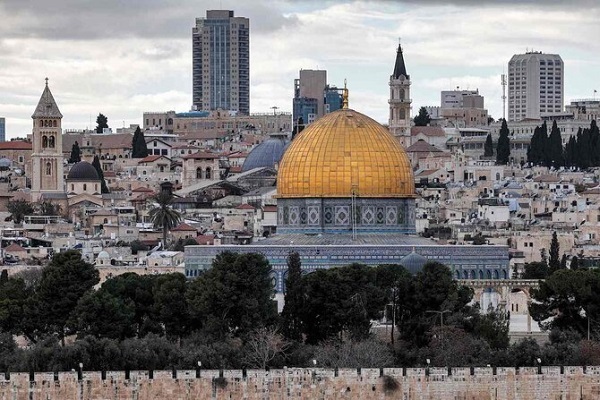Israeli Minister, Settlers' Incursion into Al-Aqsa Mosque Sparks Widespread Condemnation

Israeli communications minister Shlomo Karhi, accompanied by a group of settlers, stormed the Al-Aqsa Mosque compound on Sunday. The group, under police protection, performed rituals in tunnels beneath the Western Wall, also known as Al-Buraq Wall.
Following the visit, Karhi shared his reflections on social media platform X, referencing Jewish religious texts: "In these days when the Israeli army is achieving victories on all fronts, I am reminded of the Midrash's saying: 'In the future, the gates of Jerusalem will reach the gates of Damascus.'"
The visit, widely viewed by Palestinians and much of the Muslim world as provocative, comes amid heightened tensions in the region. Al-Aqsa Mosque, the third holiest site in Islam, has long been a flashpoint for conflict.
Read More:
Hamas condemned the incursion, calling it a "dangerous act," and stated that Karhi's actions and remarks reveal "the colonial entity's ambitions and aspirations for Arab lands."
The group urged Arab and Muslim nations to unite against Israeli occupation policies and to take decisive action to stop "ongoing genocide against Palestinians in Gaza."
Under the 1994 Wadi Araba Treaty between Jordan and Israel, Jordan maintains custodianship over Islamic and Christian holy sites in al-Quds. This role was reaffirmed in a 2013 agreement between Jordan's King Abdullah II and Palestinian President Mahmoud Abbas, placing the Al-Aqsa Mosque under the administration of the Jerusalem Islamic Waqf, overseen by Jordan’s Ministry of Awqaf, Islamic Affairs, and Holy Places.
Read More:
While Jewish visitors were historically allowed to visit the compound with the Waqf’s permission, Israel's unilateral policies have increasingly sidelined the Waqf’s authority.
Despite Israeli claims that the historic status quo—allowing only Muslims to worship at Al-Aqsa while others may visit—is upheld, video evidence has frequently shown Jewish settlers performing prayers and religious rituals under police protection during such visits.
International Reactions
Several regional states have slammed the latest incursion into the holy mosque.
The Qatari Ministry of Foreign Affairs condemned the act, calling it a "blatant violation of international law" and a "provocation to the feelings of Muslims worldwide." Qatar urged the international community to uphold its moral and legal responsibility toward al-Quds’ holy sites and reiterated its support for an independent Palestinian state with al-Quds as its capital.
Read More:
Riyadh strongly denounced the settlers' actions under Israeli police protection. The Saudi Foreign Ministry described the incursion as a violation of international law and an attack on the sanctity of Al-Aqsa Mosque. It called on the global community to hold Israeli authorities accountable for "repeated violations" against Islamic holy sites and Palestinian civilians.
The Jordanian Ministry of Foreign and Expatriate Affairs also condemned the incursions, holding Israel responsible for the violations carried out under police supervision. Ministry spokesman Sufian Al-Qudah reaffirmed Jordan’s rejection of any attempts to alter the historical and legal status quo of holy sites and urged Israel to stop such provocations.
Source: Agencies



